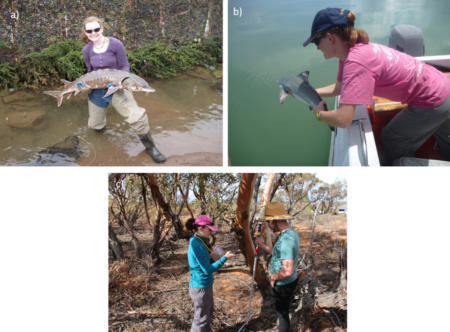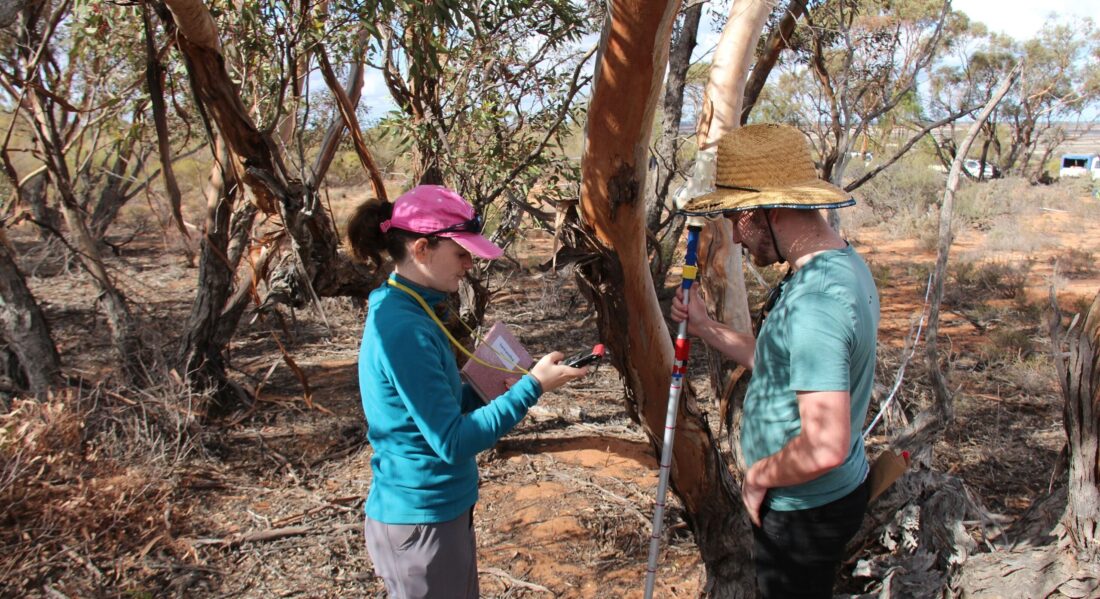Samantha Munroe, PhD
TERN Ecological Surveillance Monitoring, University of Adelaide
There is no shortage of bad news and sectoral doom and gloom in Australian academia. In a year that could be easily labelled academia’s own ‘killing season’, everyone from casual lecturers to senior professors have been abruptly shown the door, and new jobs have dried up as universities scramble to recover from the financially devastating loss of international students.
But the pandemic is not solely to blame for the problems we face. Roughly half of PhD graduates in Australia will ultimately be employed outside academia, and those that stay have no guarantee of landing a steady job or a good salary, with fewer than 0.5 per cent of PhD graduates landing a coveted position as a professor.
The academic market is oversaturated and hyper competitive, and the pandemic has made that situation worse.
When I completed my PhD in 2015 on shark ecology, the reality of the academic job market hit me like a truck. Instead of my dream job, I met fierce competition for positions, long periods of unemployment, insecure work, long-hours and relentless pressure to produce.
Several years after I graduated, I was invited to speak at my alma mater about my research. But I didn’t know how I could possibly stand in front of hardworking students and celebrate my so-called career, when I felt burnt out and was living pay-check to pay-check.
So, I didn’t. Instead I gave a talk about my real journey post-PhD, the mistakes I made, and what it took to survive those difficult years to finally arrive in a place of (relative) security.
As we stare down the barrel of a post-pandemic academic world, I humbly offer a few notes from that lecture and the things I wish I had known when I walked out of grad school with a degree in one hand but no job in the other.
Just do what you’ve got to do
It took me a full year to find my first ‘real’ job after I submitted my PhD. During that year, my husband was completing his own PhD, while I was working three service-sector jobs to cover rent. At night I would lie awake panic stricken because I forgot to take table six more sauce and nervously counting the minutes till payday.
Long days and low wages left us emotionally and financially drained. But for me the worst part was that working as a waitress made me feel like a failure. When people asked me “what are you up to these days?”, I rarely opened up about how I was paying the bills.
Now I can see my embarrassment was wasted energy fuelled by misplaced pride. I should have realised the only person judging me was me. So, when you are out there struggling towards your employment goals, remember that in the interim you just have to do what you’ve got to do to survive – don’t worry about what other people think.
When your ship comes in, take pride in the fact you kept your head above water.
Focus on what you can control
I spent many nights feeling tired and dejected. I cursed government cutbacks, imagined the candidates who bested me, and would cry into my pillow about the mounting rejections.
Looking back, I wonder what productive things (like sleeping), I could have done with all that time. As tough as it is, I offer this obvious but important piece of advice: focus on what you can control, let the rest go. This is easier said than done (I still regularly fail). Looking for work is stressful, but focusing on what is within your power to effect is better than being consumed by the things you cannot change.
Be shameless
I have had multiple periods of academic unemployment, and during each frustrating interlude I shamelessly self-promoted and asked for help. I reached out to mentors, and called on contacts and sometimes total strangers, all in the hope they would offer me work, promote me to others, or look over my applications.
It felt awkward, but it paid off in the form of contracts and teaching gigs. So be shameless, push aside the impostor syndrome, and ask for help. Remember you are an impressive and talented person, and employers would be lucky to have you.
You are more than the title of your thesis
When I entered graduate school, I believed I would spend the rest of my life working with sharks and one day become a professor. I never considered, or prepared, for any other option.
But when I entered the workforce I quickly realised there are very few jobs in shark ecology, at least not relative to the many graduates being churned out each year across the globe.
I applied for every job in shark research that I could find, but my dice kept coming up snake-eyes. That’s when I got some life-changing advice. During a meeting with my PhD supervisor where I was lamenting yet another rejection, she said “Sam, I have not taught you how to study sharks, I have trained you in how to think. You have all the skills you need to do any kind of work in science. It doesn’t matter what the topic is. Think bigger.”
That advice encouraged me to look outside marine biology for my first big break. When I did, I learned just what incredible opportunities are out there.
Since graduation, I have studied new species, used new tools, and worked in areas I never thought possible. My current job is as far away from where I started as I could have ever imagined. While still at a university, I now work in Research & Development in an industry-focused position in the field of terrestrial ecosystem monitoring. I create and manage terrestrial data infrastructure at a national scale, helping to design products and tools for scientists to conserve and manage Australian habitats. I get enormous satisfaction from my work, and there is not a shark in sight.

Caption: My career has taken me in lots of different directions, from (a) studying endangered Atlantic sturgeon in Canada, (b) tracking the movements of sharks on the Great Barrier Reef, and (c) now measuring the distribution of plants across Australia!
When you spend years entrenched in your thesis, it is easy to forget that your abilities go far beyond your abstract. You possess a wealth of marketable skills. You are a public speaker, a statistician, a problem solver, a writer, a project manager, and a risk-taker. These skills make PhD graduates extremely valuable assets in today’s workforce.
If we sell ourselves not as a collection of publications, but as our core talents and expertise, a lot more doors will open.
So my final word is this: I encourage you to think outside the box when you are looking for jobs and consider careers in other fields like industry, non-profits, and politics. Try to focus on the skills in your arsenal, not the topics you studied. If you want to be a professor, go for it! Follow your passion, but remember you are not a failure if you pursue other creative and impactful careers. If you’re wondering where to start, The Thesis Whisper has lots of great advice about finding jobs outside the academic sector.
And if you ever doubt your ability to work outside your comfort zone, remember, YES YOU CAN!
Images supplied by the author.


6 comments
Thanks for the article Samantha. Thinkwell (Maria Gardiner) has a session on Shameless Self-Promotion and it’s a great one – not many people find it easy to do this one well.
Samantha,
What an inspiring article. Thank you for your honesty and words of wisdom. I love that this piece ended with so much positivity. I will share it with the students in the HDR Writer’s Lounge that I facilitate. It’s so important for HDR students to remember that their journey is more than just their topic. It is also about the transferable skills that they are developing. Bravo!
Yes- this what we all must remember to convey to our graduates: The thesis is not the outcome of their degree, THEY ARE!
Excellent piece of advice, Samantha. Thank you.
Perfectly said Paige!
This was one of the most ‘real’ blogposts I’ve seen! I’ve had a similar experience post-PhD (esp post-pandemic). Thanks for the advice and congrats to US on getting through it all!